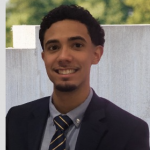The Public Policy Lab engages students and faculty in policy and program analysis and evaluation for government and community-based organizations (CBOs) in the state of Rhode Island.
2025 Public Policy Lab Fellowship Awardees
- Digital Repression and Governance of Networks and Surveillance (DRAGONS) Dataset
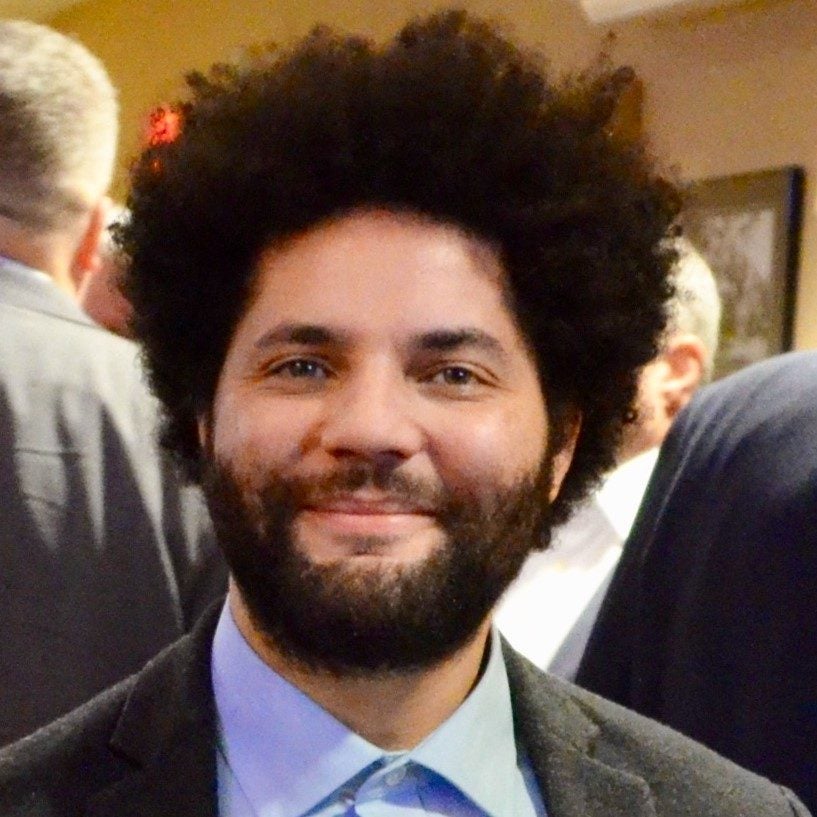
Dr. Skip Mark, Assistant Professor of Political Science & Director of the Center for Nonviolence & Peace Studies
Abstract: How can we predict and prevent violations of internet freedoms to ensure continued global digital rights advocacy and governmental accountability for engaging in digital rights violations? This project aims to investigate the growing use of digital repression through a new data collection effort that uses qualitative and quantitative information to develop more robust measures of whether digital repression occurred, where it occurred, who was targeted, and who was responsible for the repressive act. Using these data, we intend to (1) demonstrate the degree to which tactics such as internet shutdowns, online censorship, throttling of telecoms services, or digital surveillance serve to abet other human rights abuses and (2) develop a global analysis of digital repression tactics used by every country.
- Applying the Transtheoretical Model to Develop Measures of Readiness for Reduction of Marijuana Use and Driving After Use Among College Students
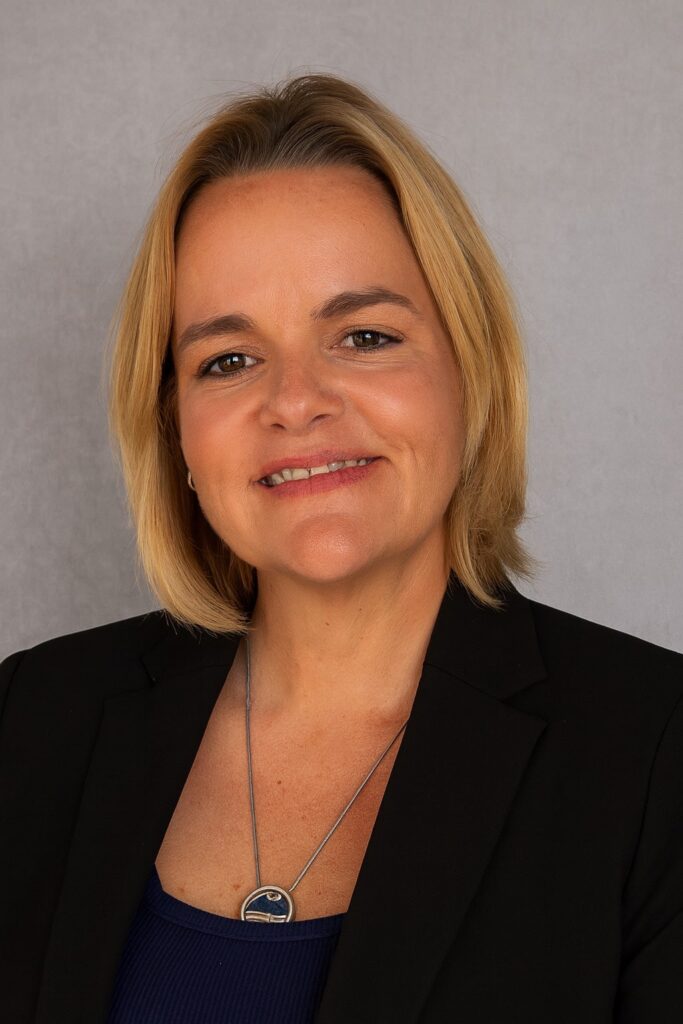
Dr. Andrea Paiva, Assistant Professor of Psychology
Abstract: Marijuana use among college students remains a prevalent public health issue with associated risks including impaired driving, especially with the legalization of marijuana in RI in December of 2022. Understanding and enhancing readiness to change these behaviors is critical for developing targeted interventions. The Transtheoretical Model (TTM) provides a robust framework for assessing and promoting behavior change across a wide range of health-related behaviors. However, its application to marijuana use and driving after use remains underexplored. Developing specific, validated measures based on the TTM can fill this gap, providing tools for researchers and practitioners to better address these behaviors. Working with MADD RI (Mothers Against Drunk Driving, Rhode Island) on this initiative will help broaden their scope from alcohol use and driving, to impaired driving which can include marijuana use.
- Ocean State Politics Podcasts

Emily Lynch: Assistant Teaching Professor, Political Science Department Professor Emily Lynch, of URI’s Department of Political Science, asked her students in Rhode Island Politics course (PSC 305) to make podcasts on local political issues in Rhode Island. Topics range from affordable housing policy to proposed educational reforms. Find the podcasts below and have a listen!
Top 2025 Podcasts
Jonathan Gutierrez and J.P. Vallot on Providence Schools
Maeve Murphy, Madison Pella-Sabourin, Cait Sansonetti, Brynn Stewart, and Katie Rogers on Political Participation
Sophie Howland, April DiBrita, Kayleigh Durant, and Megan Glancey on Assault Weapons
Other Podcasts
Hannah DeAngelis, Kathryn Holmes, and Emma Trombino on Housing in Narragansett
Kristen Sullivan and David Patrie on Free Lunch in RI Public Schools
Ryan Estus‘ Podcast on School Committees in Rhode Island
Jonathan Leon’s, Gregory Manni’s, Kiersten Sundell’s Podcast on The Environment and Energy in Rhode Island
Meredith Wilkinson’s, Kacie Curran’s, and Bella Evangelista’s Podcast on Criminal Justice Reform in Rhode Island
Tyler Vanable’s Podcast on university and college curriculums in Rhode Island.
Julia Melendez’s Podcast on the upcoming Seekonk River Soccer Stadium in Pawtucket and possible implications of the Rhode Island rent stability act.
Peter Remke’s and Isaiah Aponte’s Podcast on homelessness in Rhode Island: Actions taken so far in housing and what still needs to be done.
Rachel Severn’s Podcast on the police bill of rights in Rhode Island and its implications on our communities.
Kirsten Hauschildt’s and Chady Bandoma’s Podcast on the intersectionality of poverty and quality education in Rhode Island and the greater New England area.
- Understanding Anti-American Behavior Worldwide
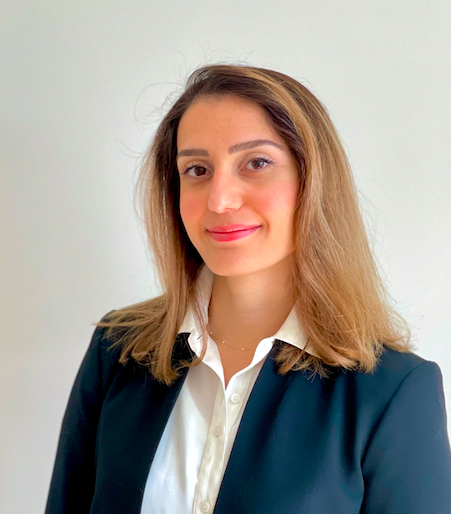
Dr. Roya Izadi (Political Science) will be leading a political science research study regarding anti-American behavior globally. While existing literature explores the causes and consequences of negative sentiments, there is a significant gap in understanding anti-American behavior. This project addresses this gap by analyzing original data on 5272 incidents against American citizens and interests worldwide from 1987 to 2015. The research question focuses on why groups/individuals choose specific actions versus others (e.g., decide to engage in non-violent protests versus decide to resort to bombing or other type of violent attacks) and the factors influencing their choice of targets (American businesses, tourists, diplomatic locations, military bases).
Significance: The theory suggests that resistance or opposition to the United States can be conceptualized as a reactive response to its multifaceted policies and actions in the global stage. In other words, how the world perceives U.S. actions, be they diplomatic, military, or economic, plays a pivotal role in shaping global behavior toward the U.S. The theory suggests that these behaviors are not random but linked to the perceived impact and consequences of U.S. initiatives. The results of the project are crucial for policymakers in assessing proper policy decisions/responses by the U.S. government.
- Rhode Island Survey InitiativeMore Information on RI Survey Initiative


The Rhode Island Survey Initiative is an effort by URI researchers to gather insights from Rhode Islanders about issues that are important to the Ocean State through an annual opinion poll. Faculty Collaborators Dr. Emily Lynch (Political Science), Dr. Ying Xiong (Communications), and SSIREP Director Dr. Julie C. Keller devised the surveys, which are administered by YouGov, an international internet-based market research and data analytics firm.
Abstract: The RI Survey Initiative provides insights into Rhode Islanders’ attitudes toward public education, trust in media, government, elections, political participation, and other issues. The research team collected the 2023 survey data in late August 2023 and analyzed how identities impacted Rhode Islanders’ perspectives on social issues. The team hopes the survey initiative could be a tool for other researchers, policymakers, the media, and others interested in understanding where Rhode Islanders stand on key issues.
- Honors Project: Women in Politics
In Spring 2023, Mollie Melnick (Majors: Political Science & Spanish) completed an Honors Project under the mentorship of Dr. Emily Lynch (Political Science) about women in politics, interviewing several women legislators in Rhode Island. Click here for a link to her YouTube podcast.
Title: Does Sexism Alter a Woman’s Decision to Run for U.S. Political Office?
Abstract: Women make up approximately 25% of the United States Congress, yet women account for more than half of the country’s population. In our current Congress in power, the 118th Congress, there are 25 women in the 100 person Senate and there are 124 women in the 435 person House of Representatives. And 71% of these women in Congress are Democrats. These disparities prompted me to evaluate the reasons behind the clear absence of proportional representation in the United States Congress. My research indicates that political scientists mostly agree that while women and men can and do win Congressional seats at the same rate, the decision for a woman to decide to run for office is much harder to make than for a man. Women are less confident than men, which leaves them doubting their political skills and ability to run for office and serve the public. Women, especially women of color, also tend to lack political party support, which can make it harder for women to obtain the necessary means to run. And women face racial and gender stereotypes from the media which can influence voters. After looking at research at a federal level, I then conducted a series of semi-structured interviews with seven women members of the Rhode Island General Assembly to evaluate whether my conclusions about women in Congress hold true to Rhode Island. The interviewees included a diverse group with variations in age, political experience, political party, and race and ethnicity. To summarize my findings, I created a short podcast series featuring clips of my interviews. I found many similarities, yet also profound differences, between women politicians in Rhode Island and women politicians in Congress. - 2023 Public Policy Lab Fellowship Awardees
Congratulations to the below mentioned on receiving the Public Policy Lab Fellowship!
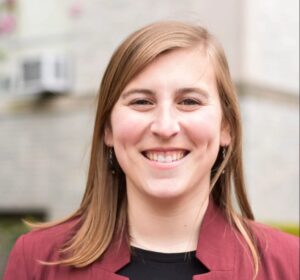
Chelsea Farrell, PhD., Criminology and Criminal Justice, Bridge to Opportunity: A Fidelity Assessment and Preliminary Program Evaluation Bridge to Opportunity: A Fidelity Assessment and Preliminary Program Evaluation
In partnership with Building Futures (BF) and the Rhode Island Department of Corrections (RIDOC), Dr. Chelsea Farrell and Dr. Natalie Pifer will be evaluating BF’s Bridge to Opportunity program. Bridge to Opportunity is funded through the Bureau of Justice Assistance Second Chance Act and offers a construction readiness program in prison that connects participants to Building Futures’ community-based pre-apprenticeship program upon release. Broadly, the goal of this program is to reduce recidivism and aid in the reentry process post-release by offering a career pathway into the construction field through continued involvement with BF to obtain the necessary certifications and experiences to enter the high demand and high wage construction industry. Dr. Farrell and Pifer will be joined by two undergraduate research fellows funded by SSIREP’s Public Policy Lab in the Fall of 2023 through Spring 2024. These student fellows will have an opportunity to gain skills in both qualitative and quantitative data management and analysis, along with a deeper understanding of program evaluation and program fidelity assessment.

John Taylor, Plant Sciences and Entomology, Mapping Diverse Services from Alternative Urban Food Provisioning Networks and Identifying Opportunities for Policy Support Mapping Diverse Services from Alternative Urban Food Provisioning Networks and Identifying Opportunities for Policy Support
Immigrant communities and communities of color are more likely to have limited food access and to experience food insecurity. However, they’re also more likely to engage in self-provisioning through growing, fishing, and foraging for food for cultural reasons or to address food system gaps. These self-provisioning activities may be part of larger-scale alternative urban food provisioning networks (AUFPNs) held together by social relations and resource flows, e.g., of food, knowledge, and inputs. The immediate goal of this project is to map the AUFPNs of focal communities in metropolitan Providence and to identify factors contributing to or limiting the success of these networks, with the ultimate goal of developing policy recommendations for encouraging and sustaining AUFPNs.
- Developing Engaged Citizens at URI
Perri Leviss and Student Public Policy Fellows:
Nethra Prasanna (International Studies and Spanish), Aly Crowley (Political Science and Criminal Justice), Angelina Gomes (Early Childhood Education and Human Development), and Sareena Shetti (Sociology and French).

Sareena Shetti (left) and Aly Crowley (right) in action during data collection/interviewing on campus 
Nethra Prasanna (ISD/Spanish) 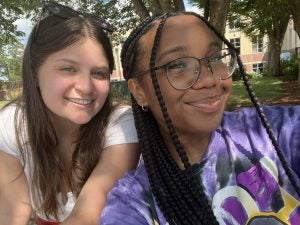
Aly Crowley (left) and Angelina Gomes (right) 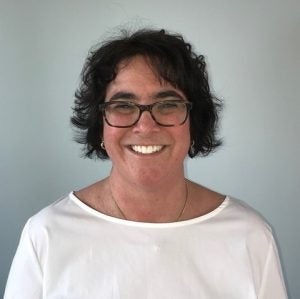
Perri Leviss: Currently Assistant Prof. of Political Science at Rhode Island College (previously in Political Science Department at URI) This is a research project that examines the experiences of recent URI college graduates from the December 2021 and May 2022 classes to explore their levels of civic engagement. The project addresses a series of research questions about the civic mindedness of URI students (and how this may differ by race + ethnicity, gender, class, major etc.), the types of civic-oriented activities students participated in during their time at URI (including academic experiences and co-curricular activities) and the relationship of these activities to students’ sense of community and belonging at URI as well as their post graduation plans. As an engaged research project in partnership with Generation Citizen/RI (https://generationcitizen.org/tag/rhode-island/), members of the URI student community were involved in the design of the research project, the data collection, and the analysis and reporting of both quantitative and qualitative data. The project builds upon a pilot study that was developed in spring 2022 through a student directed course to 1) identify validated measures of civic engagement and citizenship used at other institutions of higher education and 2) test the data collection instruments.
- Rhode Island “Back-to-School” Survey on Media Literacy
Primary Investigator: Dr. Renee Hobbs, Professor of Communication Studies (pictured at left)
Dr. Renee Hobbs Tessa Mediano Jenny Sullivan On October 25, just in time for National Media Literacy Week, a SSIREP Public Policy Lab team led by Dr. Renee Hobbs released a Back-to-School Report Card describing the current state of media literacy education throughout the Rhode Island school system. The report has been featured in the Boston Globe alongside an interview with Dr. Hobbs. (more…)
- “Stuck in Solitary”
Hannah Beaucaire Dr. Natalie Pifer Hannah Beaucaire, an undergraduate senior majoring in Political Science and Criminal Justice, created a series of digital video stories on the topic of solitary confinement. The videos seek to make information about the practice and effect of solitary confinement more accessible and provide a resource for advocates pursuing solitary confinement policy reform. Beaucaire’s project was supported by the College of Arts and Science’s Summer Fellows Program and the Office of Undergraduate Research and Innovation at URI.
Beaucaire conceptualized the project while learning about solitary confinement in a criminology and criminal justice class taught by Dr. Natalie Pifer, an Assistant Professor of Criminology and Criminal Justice and a SSIREP fellow. Dr. Pifer, who served as the faculty advisor for Beaucaire’s work, is a punishment scholar who studies criminal justice reforms, including solitary confinement. Dr. Pifer has received SSIREP support to collect interview data as part of her research on reforms undertaken by the Maine Department of Corrections. She has conducted research into reforms to solitary confinement policy undertaken by the Washington state Department of Corrections. Information about these reforms is available here. (more…)
- The Ocean Tides School Research Assistant Program
Primary Investigator: Dr. Judy A. Van Wyk, Associate Professor of Sociology & Anthropology (pictured at left)
Dr. Judy A. Van Wyk Olivia Johnson Randy Urena Dr. Van Wyk’s team at the Public Policy Lab will work to encode data from the case files of residents at Ocean Tides, an accredited school and residential treatment program for adjudicated boys (ages 13-17) in Narragansett, RI. Ocean Tides is operated by De La Salle Christian Brothers, a non-profit organization, under the auspices of the Rhode Island Department of Children, Youth, and Families (DCYF). Student research assistants on the team will include Olivia Johnson (pictured above, at center), Antineice Muhammad and Randy Urena (at right). They will practice valuable research skills, learn about the Ocean Tides School and meet the staff. The data they process will help Ocean Tides develop future programming for their residents and inform research about troubled youth.
- Developing Apprenticeship Models in Early Childhood Education
Primary Investigator: Dr. Sue K. Adams, Professor of Human Development and Family Science (pictured at left)
Dr. Sue K. Adams Sarah Behm In partnership with the Rhode Island Association for the Education of Young Children and the RI Department of Human Services, Dr. Adams, colleagues from the URI Child Development Center and HDF undergraduate student, Sarah Behm (pictured above, at right), will be working to develop a model to provide training for associate-level teacher apprentices in the provision of high-quality early childhood education and care. The URI Child Development Centers will provide intensive mentorship to teachers and teaching assistants at 4 community preschools to help enhance skills and develop the beginnings of a sustainable model of apprenticeship in early childhood education and care.
- The Inclusive Housing Project
Primary Investigators: Drs. Brendan Skip Mark, Assistant Professor of Political Science (pictured in top row, left); Richard McIntyre, Professor of Economics (top row, center); Shanna Pearson-Merkowitz, Professor of Political Science (top row, right); and Robert Widell, Associate Professor of History (center row, left)
Dr. Brendan Skip Mark Dr. Richard McIntyre (Photo by Michael Salerno Photography) Dr. Shanna Pearson-Merkowitz Dr. Robert Widell Patrice Pierre Yisel Vasquez Olivia Johnson Katie Norman In partnership with the South Kingstown Housing Authority and the Johnnycake Center, faculty investigators will work together with students–including , Olivia Johnson (pictured above in the bottom row, at left), Patrice Pierre (middle row, center), Yisel Vasquez (middle row, right), Katie Norman (middle row, center), and Breanni Torres–to produce an oral history of South Kingstown’s public housing; develop and deploy a community survey of public housing residents and waitlistees to assess constituent needs; and conduct a review of best practices for public housing financing and design that builds social capital and integration of the community.
- State Policies to Facilitate Higher Education and Workforce Training for Former Foster Youth
Primary Investigator: Dr. Shanna Pearson-Merkowitz, Professor of Political Science (pictured at left)
Dr. Shanna Pearson-Merkowitz Austyn Ramsay Shawn Sheppard In brief: Dr. Pearson’s Public Policy Lab team partnered with Adoption RI to conduct an analysis of state policies that aim to increase access to higher education for former foster youth. The team, which includes undergraduate students Austyn Ramsay (center), Shawn Sheppard (right), and Emma Mariano, analyzed current educational and economic outcomes among foster youth as well as the barriers to college entry and graduation. They also evaluated the current resources and aid available for foster youth in Rhode Island and investigated best practices from other states that could serve as models for Rhode Island. (more…)
- Rhode Island Trauma-Sensitive Education Collaborative (RITSEC)
Primary Investigator: Dr. Diane Kern, Professor of English Language Arts and Literacy Teacher Education (pictured at left)
Dr. Diane Kern Caroline Kennedy Jova Trochez In brief: Dr. Kern’s Public Policy Lab team joined the Rhode Island Trauma-Sensitive Education Collaborative (RITSEC) to develop an online mini-curriculum designed to provide pre-service and in-service teachers throughout the state with resources to help them support students experiencing traumatic conditions such as entering the foster system, foster relocation, homelessness, and food insecurity. The team, which includes Jova Trochez (center), Caroline Kennedy (right), and Tyrone Thomas, joined partners such as the URI School of Education, Adoption RI, and House of Hope to improve educators’ understanding of both the traumas themselves as well as trauma-informed teaching strategies. Students are currently producing a podcast to raise wider awareness of these subjects–stay tuned! (more…)
- PACE RI Family Caregiver Survey Development
Primary Investigator: Dr. Skye Leedahl, Associate Professor of Human Development & Family Studies and Political Science
Dr. Skye Leedahl Isabella Olczak In brief: Dr. Leedahl’s Public Policy Lab team researched and designed a caregiver survey for the PACE Organization of Rhode Island (PACE RI), a non-profit community-based healthcare and insurance provider for adults 55 or older with complex medical conditions who prefer to live at home. The survey will allow PACE RI to assess and improve the support it provides to its clients’ caregivers. Led by Dr. Leedahl, students Madeline Green, Isabella Olczak, Sarah Robitaille, and Elizabeth Lubera conducted research and incorporated input from meetings with PACE RI administrators and social workers in order to design the survey. The team’s work will also inform survey redevelopment for the URI Cyber-Seniors program. (more…)
- Understanding Anti-American Behavior Worldwide

Dr. Roya Izadi (Political Science) will be leading a political science research study regarding anti-American behavior globally. While existing literature explores the causes and consequences of negative sentiments, there is a significant gap in understanding anti-American behavior. This project addresses this gap by analyzing original data on 5272 incidents against American citizens and interests worldwide from 1987 to 2015. The research question focuses on why groups/individuals choose specific actions versus others (e.g., decide to engage in non-violent protests versus decide to resort to bombing or other type of violent attacks) and the factors influencing their choice of targets (American businesses, tourists, diplomatic locations, military bases).
Significance: The theory suggests that resistance or opposition to the United States can be conceptualized as a reactive response to its multifaceted policies and actions in the global stage. In other words, how the world perceives U.S. actions, be they diplomatic, military, or economic, plays a pivotal role in shaping global behavior toward the U.S. The theory suggests that these behaviors are not random but linked to the perceived impact and consequences of U.S. initiatives. The results of the project are crucial for policymakers in assessing proper policy decisions/responses by the U.S. government.
Previous Policy Lab Reports
- Launching the Rhode Island Temporary Caregiver Insurance Program (TCI): Employee Experiences One Year Later
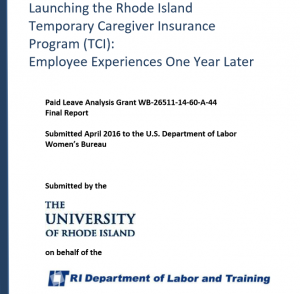 SSIREP faculty members Barbara E. Silver and Helen Mederer, along with Emilija Djurdjevic, PhD (also of URI) worked with the Rhode Island Department of Labor and Training to submit a detailed analysis of RI’s TCI program. (more…)
SSIREP faculty members Barbara E. Silver and Helen Mederer, along with Emilija Djurdjevic, PhD (also of URI) worked with the Rhode Island Department of Labor and Training to submit a detailed analysis of RI’s TCI program. (more…) - The Future of McCoy Stadium
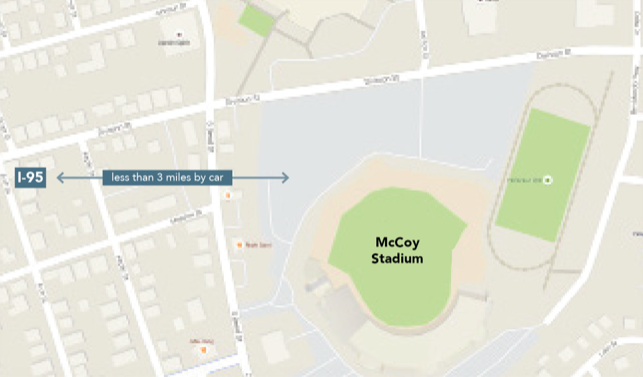 What should the state do with the soon to be vacant McCoy Stadium? Bridget Hall and Michael Steiner, in Shanna Pearson-Merkowitz’s 2016 HPR 412 course, conducted a detailed analysis of what options there are for the stadium and the costs and benefits of each option. (more…)
What should the state do with the soon to be vacant McCoy Stadium? Bridget Hall and Michael Steiner, in Shanna Pearson-Merkowitz’s 2016 HPR 412 course, conducted a detailed analysis of what options there are for the stadium and the costs and benefits of each option. (more…) - Year Round Education Analysis
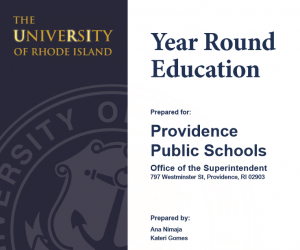 What are the impacts of a year round school calendar? Chris Maher, Superintendent of Providence Public School Department, asked University of Rhode Island students Kateri Gomes and Ana Nimaja to conduct an analysis on the details of year round education (YRE) and ultimately give the Providence school system a recommendation. (more…)
What are the impacts of a year round school calendar? Chris Maher, Superintendent of Providence Public School Department, asked University of Rhode Island students Kateri Gomes and Ana Nimaja to conduct an analysis on the details of year round education (YRE) and ultimately give the Providence school system a recommendation. (more…) - Short Term Rentals in Rhode Island
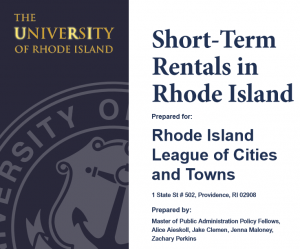 University of Rhode Island MPA policy fellows Alice Aieskoll, Jake Clemen, Jenna Maloney, and Zachary Perkins were asked by the The Rhode Island League of Cities and Towns to analyze the short term rental environment throughout the state. Their examination focuses on best practices and policy recommendations for the burgeoning short term rental markets throughout each municipality in Rhode Island. Read the full report.
University of Rhode Island MPA policy fellows Alice Aieskoll, Jake Clemen, Jenna Maloney, and Zachary Perkins were asked by the The Rhode Island League of Cities and Towns to analyze the short term rental environment throughout the state. Their examination focuses on best practices and policy recommendations for the burgeoning short term rental markets throughout each municipality in Rhode Island. Read the full report. - Evaluation of Rhode Island’s Autism Project
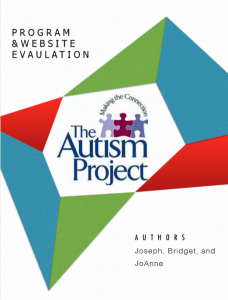 Joseph J. Armendarez wrote a program evaluation proposal for the Rhode Island Autism Project in his PSC 505: Public Program Evaluation class. At the time, he was interning for The Autism Project, and staff from the organization asked him to follow through with the proposal and complete the evaluation. Below is the proposal and completed report. Read the proposal here, or read the report here.
Joseph J. Armendarez wrote a program evaluation proposal for the Rhode Island Autism Project in his PSC 505: Public Program Evaluation class. At the time, he was interning for The Autism Project, and staff from the organization asked him to follow through with the proposal and complete the evaluation. Below is the proposal and completed report. Read the proposal here, or read the report here. - Seaport Risk Assessment
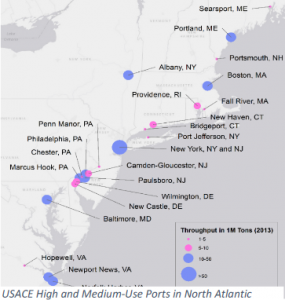 SSIREP fellow Austin Becker and PhD candidate Duncan McIntosh have been working to direct their research toward assessing the risks posed at seaports in the face of climate change. (more…)
SSIREP fellow Austin Becker and PhD candidate Duncan McIntosh have been working to direct their research toward assessing the risks posed at seaports in the face of climate change. (more…) - Summer Youth Employment Program Recommendations
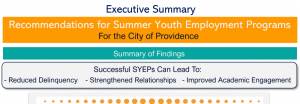 What are best practices in designing a government run summer youth employment program (SYEP)? Students in PSC 524 students conducted an analysis of best practices of SYEPs for the City of Providence and the Department of Labor and Training. You can read the executive summary here, and the final report is available here.
What are best practices in designing a government run summer youth employment program (SYEP)? Students in PSC 524 students conducted an analysis of best practices of SYEPs for the City of Providence and the Department of Labor and Training. You can read the executive summary here, and the final report is available here. - Legalization of Marijuana in Rhode Island
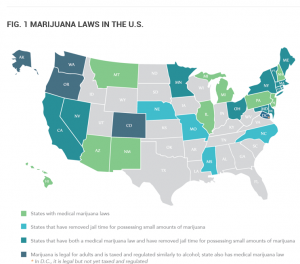 Should Rhode Island Legalize Marijuana? Students Mark Bocchini, Catherine Garcia, Dakota Porto, and Sarah Sangeado worked on researching the details of Marijuana Legalization in Rhode Island in Shanna Pearson-Merkowitz’s HPR 412. (more…)
Should Rhode Island Legalize Marijuana? Students Mark Bocchini, Catherine Garcia, Dakota Porto, and Sarah Sangeado worked on researching the details of Marijuana Legalization in Rhode Island in Shanna Pearson-Merkowitz’s HPR 412. (more…) - The Town of Bristol Recycling Program: A Policy Analysis
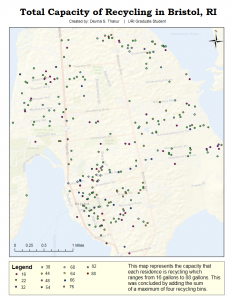 Aaron Ley and MPA student student Devina Thakur as part of a class on administrative theory (PSC 501) completed this policy analysis for the Town of Bristol’s Department of Public Works. It puts forth several options for transitioning recycling pickup from a manual collection system to an automated curbside collection system. Read the full report here.
Aaron Ley and MPA student student Devina Thakur as part of a class on administrative theory (PSC 501) completed this policy analysis for the Town of Bristol’s Department of Public Works. It puts forth several options for transitioning recycling pickup from a manual collection system to an automated curbside collection system. Read the full report here. - The Economic Benefits of a Flexible Workplace
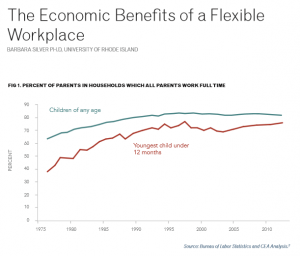 SSIREP fellow Barbara Silver, in 2016, conducted a detailed analysis on the economic implications of work-life balance and the growing demand for flexible workplaces. Her work was published through The Collaborative. Read a copy of the full report here.
SSIREP fellow Barbara Silver, in 2016, conducted a detailed analysis on the economic implications of work-life balance and the growing demand for flexible workplaces. Her work was published through The Collaborative. Read a copy of the full report here. - Ensuring Paid Family Leave Pays Off
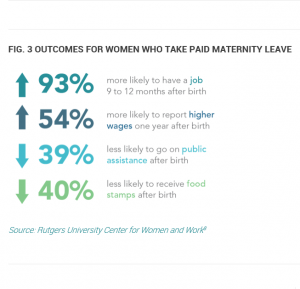 Rachel-Lynn Longo, with Shanna Pearson-Merkowitz, looked at the benefits of paid family leave and researched how to ensure that all workers see those benefits. The full report is available here. (This report was published by The Collaborative. The link provided for the full report is from an archived copy of their website. As a result, some linked resources may not display as originally intended.)
Rachel-Lynn Longo, with Shanna Pearson-Merkowitz, looked at the benefits of paid family leave and researched how to ensure that all workers see those benefits. The full report is available here. (This report was published by The Collaborative. The link provided for the full report is from an archived copy of their website. As a result, some linked resources may not display as originally intended.) - Improving Outcomes for Foster Youth in Rhode Island
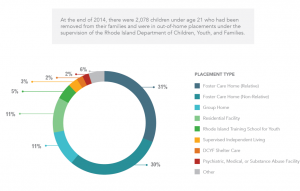 Sacanna Bebe, Vanessa Kolb, Brittany Kraft, and Robert Krule were asked by the RI state legislature to study how to improve outcomes for foster youth in Rhode Island. There received guidance from SSIREP fellow, Shanna Pearson-Merkowitz. The report brief can be read here, and the full work can be found here. (This report was published by The Collaborative. The link provided for the full report is from an archived copy of their website. As a result, some linked resources may not display as originally intended.)
Sacanna Bebe, Vanessa Kolb, Brittany Kraft, and Robert Krule were asked by the RI state legislature to study how to improve outcomes for foster youth in Rhode Island. There received guidance from SSIREP fellow, Shanna Pearson-Merkowitz. The report brief can be read here, and the full work can be found here. (This report was published by The Collaborative. The link provided for the full report is from an archived copy of their website. As a result, some linked resources may not display as originally intended.) - The Economic Impact of Expanding Medicaid
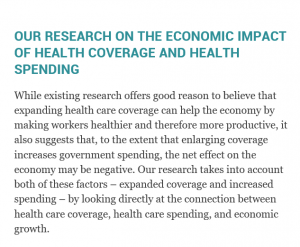 SSIREP fellows Shanna Pearson-Merkowitz and Liam Malloy did a deep analysis on the impact of Medicaid expansion, including how health insurance coverage rates and health care spending levels can affect economic growth. Read the full report here. (This report was published by The Collaborative. The link provided for the full report is from an archived copy of their website. As a result, some linked resources may not display as originally intended.)
SSIREP fellows Shanna Pearson-Merkowitz and Liam Malloy did a deep analysis on the impact of Medicaid expansion, including how health insurance coverage rates and health care spending levels can affect economic growth. Read the full report here. (This report was published by The Collaborative. The link provided for the full report is from an archived copy of their website. As a result, some linked resources may not display as originally intended.)









